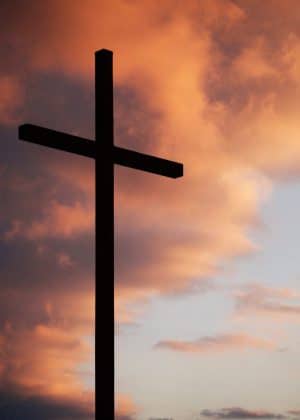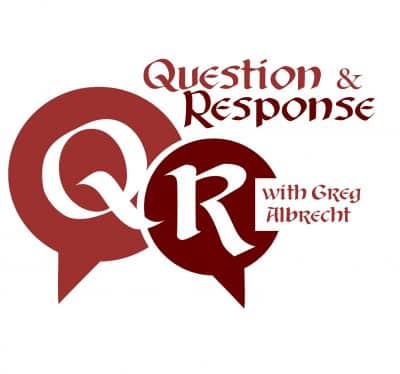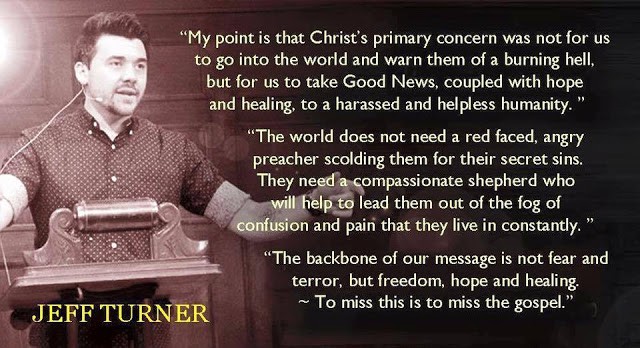Calvary: Crucifixion as Torture, Cross as Hope – Brad Jersak
Trite or true, we’re each and all on a journey, not quite sure whether any given year, week or moment is really ascent or descent — the calm before a storm or the dark before dawn.
I see this tension in the biblical story of Calvary, at once a crucifixion and a Cross, the intersection of goodness and affliction, of torture and hope. At Calvary, we see the violence of religious fanaticism married to national security … and we see the humility, forgiveness and self-giving love of God.
I hear this tension in Augustine, who is quoted in the movie, Calvary, as saying, “Do not despair; one of the thieves was saved. Do not presume; one of the thieves was damned.” Calvary the movie is a profound and powerful tale of an Irish priest (played by Brendan Gleeson) who receives a death threat during confession and is warned to get his house in order over the course of a week. During that week, we see two themes intensify towards the climax.
First, we see how Gleeson represents goodness and sincerity. Even his would-be killer, the victim of long-term childhood sexual abuse by a priest, says, “There’s no point in killing a bad priest … but killing a good one. That’d be a shock.” In that sense, Gleeson’s character (Father James) serves as a Christ figure–and each character in the drama defines his or her own spiritual condition by their response to him. The truth of their lives become transparent through their attitudes and actions towards the priest.
Whether before the Christ of Calvary or the protagonist of Calvary, our personal response–positive or negative, the penitent thief or the mocker–to the one being crucified is the nature of judgement. In the face of goodness, we render our own verdicts. In the exposure of our own evil, we embrace mercy or harden ourselves in pride. Love rescues us or condemns us, just by being love. The same gospel is the aroma of life to some and the stench of death to others. The same pillar of fire is warmth and comfort to some and darkness and terror to others. Thus, as we gaze on Calvary, the fire of God’s love does a refining fire, and that process in us involves the progressive crucifixion of the old self.
This marks the second intensification in the Calvary script, for as Father James prepares ‘to meet his Maker,’ he finds himself having to walk out his own crucifixion. In the face of his approaching showdown, we see him journey through the dark night of his own rising anger, despair, doubt and violence. The ‘hell’ within him rises to the surface so that he must choose between cynicism and hope, flight or faith, killing or forgiving.
In a discussion with his daughter, Father James says, ‘I think there’s too much talk about sins and not enough about virtues.’ Fiona asks, ‘What would be your number one?’ And he replies, ‘I think forgiveness has been highly underrated.’ When he finally confronts death, will his clarity of mind and faith manifest in life and actions? That’s a question the movie asks of the viewer.
Fifty years into my journey, I’m keenly aware that it’s far from over and things are often not what they seem. My ‘goodness’ has often married sincerity and self-deception. The worst things that ever happened to me were also the best things that ever happened to me. Any given moment can be a crucifixion and/or a cross; I can be the good thief or the bad one (or both). I tend to hold presumption and despair together far too comfortably. With the Calvary movie and the Calvary journey fresh in my mind, I reviewed some stages of my ascent/descent.
Here are some highlights of my last 10 years, which may serve as indicative way-points for just one stretch of one man’s ‘Way of the Cross.’ But by no means does this shoe fit every foot. I’m only sharing it because pieces might resonate for those disoriented in their own ‘Pilgrim’s Process’:
1. Triumphalism – Messiah complex: There were times when I so believed in the victory of Christ in this life that I imagined myself as his faithful agent, loving people back to life and health. I was praying with increasing confidence that we would begin to see healing of body, soul and spirit in a very consistent way in this life. That would be lovely, and I certainly enjoy the ‘already’ of the ‘already-not yet’ kingdom. But my confidence was laced with pride and presumption, which led me to flirt with and finally trip on symptoms of a Messiah complex.
2. Failure – Frustration – Anger: My triumphalist expectations were an obvious setup for tremendous failure and frustration. These failures were personally very hurtful, as it became obvious to me, my family and friends that I had the same capacity for causing hurt and harm as anyone else who gets high on their own arrogance. Triumphalism is a crazy train that will always leave the rails and inflict damage. The fruit is anger at God blended with intense doses of self-hatred and blaming others. While the train wreck is awful, can we honestly say that it’s worse than the cockiness of the previous stage that led to it? Often our failures, frustrations and anger are the only way we can be crucified to spiritual fatal religious grandiosity.
3. Grief – Bewilderment – Astonishment: Sadly, coming to the end of oneself doesn’t happen overnight, nor is it a once-in-a-lifetime deal. Each go-around is another little crucifixion. ‘Bottoming out’ starts with waking up in the pigpen and asking, ‘What happened? How did I get here? What was I thinking? Where was God?’ These questions emerge from the anger but they’re also a sign that we’re becoming self- and others-aware. During failure and frustration, our ‘repentance’ is more likely bitter regret and still very I-focused. But in this stage, there is a godly sorrow that begins to arise when we own our wrongs as our own. Psalm 51 style grief is a cleansing of tears and Christ’s blood-sprinkled hyssop. Between these tears, a certain bewilderment settles about how we can become so wrong, how people can be so cruel, the world so brutal and how God can feel so absent. The tragedies and joys of life are equally astonishing.
4. Forgiveness – Acceptance – Peace: When traumatized into astonishment, many just gaze into the black abyss of it all and give in to cynicism, resignation and despair … even violence and vengeance. Or they may seek solace in the certitude of fundamentalism, thus re-entering the cycle with new but false hopes of another way to hop aboard the triumphal-entry parade, rather than facing further into the Cross. But there’s another way. Unlike the crass torture of crucifixion, the Cross is a revelation of God’s love and forgiveness for the worst of who we are, just as we are (‘without one plea’). The Way of the Cross invites us to exchange resignation for surrender, and despair for acceptance. When I accept the stubborn fact that I often fail, that I don’t get my way, that life is not picnic, and that God doesn’t obey all my genie-in-the-lamp wishes, something counter-intuitive results. I come to serenity .. . peace beyond understanding. My spiritual eyes see through the crucifixion (deconstruction) to the Cross (restoration). Or at least the hope of it.
In the context of the past week’s news stories I relive the failure, anger and grief very quickly. I am sore tempted by rage and cynicism and violence and despair. It’s not just that life is difficult … it’s that everyone (including me) is deeply vulnerable to employing evil in the name of justice and freedom. It’s not just that God ‘feels absent.’ It’s not just that God is placid — his presence in these scenes seems conspicuously flacid. So I’m at a ‘Cross’-roads again. What is it I want? The God of triumphalism who magics it all away? Or commissions me to do so with my prayer-wand or billy club? Whence cometh hope?
5. Basic Faith – Love – Hope: God invites me back to acceptance, not of what should be but of what is. He allows me to anger my way to grief and grieve my way to bewilderment … to kneel at the foot of the Cross, where human wickedness has its way and where God’s love and forgiveness for the world is revealed. We wait there. We will not rush off to the next triumphalist promise. We will not resume the delusions of Messiah complex. We will not hate. We will not lay down in despair. We will neither fix it nor figure it out. We will not make demands of God or proclaim false victories in his name. We will not ask for silver bullets, magic potions. We will be astonished. And then?
As I waited and watched, I was surprised to see in my mind’s eye my dear friend Peter Dippl. I could have seen others, but I saw Peter. Peter has walked the Way of the Cross well ahead of me. He knows far more and much worse stories of religious fraud, the persecuted church, and the evil that men do in the name of Christ, Allah and Atheism. He’s known victory and failure, anger and grief, acceptance and astonishment. He’s been in the kiln and come out as an authentic ‘apostle of love.’ In spite of his incredible intelligence and global influence, he stoops to show me the simplicity of the next step: basic trust that God is good and the willingness to love others as the very way God is present and has not abandoned us.
God’s goodness is not proven; it is trusted. And the evidence for God’s goodness is not miraculous sign and wonders; it is the love of God resident, active and frankly, scarily powerful, through people like Peter Dippl. Peter is not my Messiah, nor do I mean to flatter or embarrass him. But I do find it important to say that I have seen the hope I need, the basic trust I want, and the love ahead on the path here, in the real world, not in a star-power but in a humble man who lets me cry on his shoulder. I’m not that man yet, but I know enough women and men to know what I’m feeling is hope, not just wishful thinking. And that this week, the evil doesn’t get the final word. Love does.











 Plain Truth Ministries | Box 300 | Pasadena, CA 91129-0300
Plain Truth Ministries | Box 300 | Pasadena, CA 91129-0300

